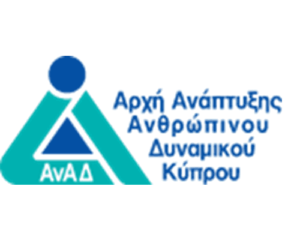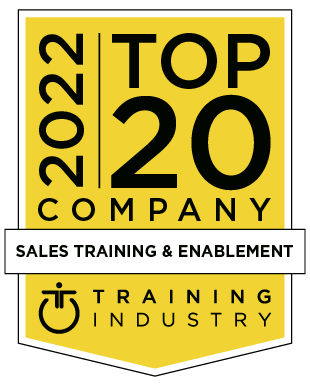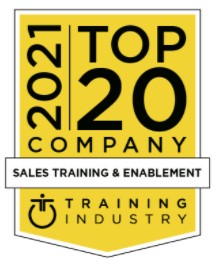Join the Adventure: Nicosia and Limassol Quest – A Thrilling Team Building Experience! Delight Members of your Teams
Give members of your staff the opportunity of an exhilarating journey that will challenge their teamwork skills, boost their morale, and foster camaraderie like never before! Look no further than the Nicosia or Limassol Quest, a modern-day treasure hunt designed to ignite the spirit of adventure and teamwork!
As Gold Partners of Catalyst Global we bring you an unforgettable, technology-based, teambuilding experience through the dynamic activity, “The Quests.”
Affordable and Flexible: The cost per participating team of 6 people is €420+VAT. And here’s the best part – there’s no limit to the number of teams you can send! Plus, companies bringing multiple teams will enjoy a 10% discount on the cost of additional teams, making it even more cost-effective to involve your entire workforce.
This includes an after activity ‘’cocktail’’ with drinks and snacks.
Choose Your Date: Mark your calendars! For the Limassol Quest, companies can choose either the 24th or 30th of May, while for the Nicosia Quest, the dates are set for the 5th or 12th of June. Select the date that works best for your team and get ready for an adventure of a lifetime!
Exclusive Discounts: The excitement doesn’t end with the quest. The winning team will receive a prestigious 10% discount for any future All Company Quest event their company wants to organize, a reward that keeps on giving!
More Money Saving: Follow our company page on LinkedIn, and get ready for some brain-teasing fun! In the coming days, we’ll be posting word games and riddles for you to solve. Keep an eye out, because the company that solves all the riddles and contacts us with the answer to the final sentence when putting all the words together, will earn the opportunity to bring one person for free!
To secure your spot or for any inquiries, please contact us at 22 62 52 22 or send us an email at info@inter-frontiers.com. If you think you do not need anything more to decide, complete the attached form and send it to us. We will then connect with you to explain the next steps.
Let’s make memories, conquer challenges, and embark on this epic journey together!
The Nicosia Quest
The New WOW Team Building Event by interFRONTIERS
Offer your colleagues, a unique bonding and team building experience.
Get them to join, our 3-hour, challenging, energizing, breath-taking adventure to discover landmarks and well- kept secrets of Nicosia.
Mind boggling puzzles, riddles, maps, and mysteries from cloud will be hitting their mobile to test their wits in problem solving, decision making, collaborating with others.
Other than fun, what will the benefits be for the ”quest traveler” ?
They will experience the challenge of:
- Having to cope with the unpredictable, unexpected
- Thinking fast and taking decisions quickly
- Time management
- Problem solving
- Collaborating and synergizing with others
What is the adventure like?
- On foot, in teams of 3 (each ‘’Quest Vehicle’’ can take only take 3)
- The starting point is near Eleftheria Square.
- A 20-minute briefing takes place before the adventure starts
- The final destination is somewhere near the Famagusta Gate
- Results presentation and debriefing
Customize this unique team building experience:
We have many ways to customise the adventure so that it ‘’looks and feels like’’ is your own.
We can design, as part of the adventure, a custom made ‘’digital playground’’ with challenges related to your products, values, and anything else you think is relevant.
The debriefing can be extended and customised to learning messages, you believe will be appropriate. And the adventure could end with a Happy Hour with drinks and snacks.
To find out more:
Call 22 62 52 22 or 22 364 786
Aνάπτυξη Ικανοτήτων Συνεντεύξεων Επιλογής Προσωπικού

Η προσέλκυση και η επιλογή του κατάλληλου προσωπικού είναι καθοριστικής σημασίας για μια επιχείρηση, ιδιαίτερα σήμερα που αποκτούν σημασία νέες δεξιότητες και ικανότητες προσωπικού. Αυτό αποτελεί πρόκληση, όχι μόνο για το προσωπικό των Υπηρεσιών Ανθρώπινου Δυναμικού, αλλά και άλλα στελέχη που εμπλέκονται όλο και περισσότερο στη διαδικασία επιλογής και πρόσληψης.
Με μια συνομιλία, δηλαδή συνέντευξη, διάρκειας 30-40 λεπτών, πρέπει να κρίνουμε αν υπάρχουν οι κατάλληλες δεξιότητες, εάν οι αξίες του ατόμου αυτού, ταιριάζουν με αυτές που επικρατούν στον οργανισμό και αν θα μπορεί να αναπτύξει την απαιτούμενη χημεία με την ομάδα. Αυτό είναι λοιπόν το στοίχημα, γιατί όλοι γνωρίζουμε τα προβλήματα που προκύπτουν από λανθασμένες επιλογές και προσλήψεις.
Το πρόγραμμα περιλαμβάνει το στάδιο της προετοιμασίας για τη συνέντευξη, τη διεξαγωγή της συνέντευξης και τον τρόπο σύνοψης και επιλογής των κατάλληλων υποψηφίων.
Στόχοι του Workshop
Οι συμμετέχοντες θα:
- Κατανοήσουν τις προκλήσεις για διεξαγωγή μιας επιτυχημένης συνέντευξης
- Συνειδητοποιήσουν τη σημασία και το περιεχόμενο της προετοιμασίας πριν από τη διεξαγωγή της συνέντευξης για σχεδιασμό ενός οργανωμένου πλαισίου διεξαγωγής
- Αναπτύξουν τεχνικές επικοινωνίας (λεκτικές και μη λεκτικές) για καλύτερη αξιολόγηση του τρόπου σκέψης των υποψηφίων
- Αναπτύξουν ένα σύστημα αξιολόγησης που να ταιριάζει στις απαιτήσεις της εκάστοτε θέσης και να μάθουν να αξιολογούν με αντικειμενικότητα τις παρατηρήσεις τους
- Διεξάγουν όλη τη διαδικασία για την επιλογή υποψηφίων που να ταιριάζει στην εταιρεία και να έχει την ευελιξία να προσαρμόζεται στις απαιτήσεις διαφορετικών θέσεων εργασίας
Περιγραφή Υποψηφίων
Το πρόγραμμα απευθύνεται σε στελέχη της Υπηρεσίας Ανθρώπινου Δυναμικού καθώς και σε στελέχη άλλων τμημάτων που εμπλέκονται στη διαδικασία επιλογής και πρόσληψης προσωπικού.
Πληροφορίες και Υλοποίηση Προγραμμάτων
Το διήμερο πρόγραμμα (12 ώρες) προσφέρεται σαν ανοικτό πολυεπιχειρησιακό πρόγραμμα. Το κόστος συμμετοχής για κάθε άτομο είναι €350+ΦΠΑ και η επιχορήγηση της ΑνΑΔ για δικαιούχους είναι €204. Για κάθε επιπρόσθετο άτομο από την ίδια εταιρεία η αρχική τιμή διαμορφώνεται σε €300+ΦΠΑ.
Οι ημερομηνίες διεξαγωγής του προγράμματος είναι:
31 Οκτωβρίου & 1 Νοεμβρίου
21-22 Νοεμβρίου
Χώρος Διεξαγωγής το Εκπαιδευτικό μας Κέντρο «Ιθάκη».
Για πληροφορίες και συμμετοχές:
Τηλ. 22625222
Εισηγητές
Αιμίλιος Ροτσίδης
Με 20 χρόνια εμπειρία σε ζητήματα Διαχείρισης Ανθρώπινου Δυναμικού τόσο σε κυπριακές αλλά και διεθνής εταιρείες. Είναι Σύμβουλος Εκπαίδευσης και Ανάπτυξης Προσωπικού στην InterFRONTIERS InterKNOWLEDGE από τον Μάρτιο του 2022. Είναι πιστοποιημένος εκπαιδευτής της ΑνΑΔ και έχει δουλέψει σε εταιρείες όπως η ΜΤΝ, ο όμιλος εταιρειών Ζορπάς και η Melco
Ρεβέκκα Ράφτη
Με τριαντάχρονη εμπειρία στην επιχειρησιακή αγορά της Κύπρου, τα τελευταία 4 χρόνια είναι Σύμβουλος Εκπαίδευσης και Ανάπτυξης Προσωπικού στην InterFRONTIERS InterKNOWLEDGE. Για 5 χρόνια δούλευε στο Τμήμα Εκπαίδευσης Ανθρώπινου Δυναμικού της Τράπεζας Κύπρου όπου μεταξύ άλλων, ασχολήθηκε με τον τομέα ανάπτυξης και αξιολόγησης προσωπικού. Είναι πιστοποιημένη εκπαιδεύτρια της ΑνΑΔ
Το πρόγραμμα εγκρίθηκε από την ΑνΑΔ.
Οι επιχειρήσεις/οργανισμοί που συμμετέχουν με εργοδοτούμενους τους, οι οποίοι ικανοποιούν τις προϋποθέσεις της ΑνΑΔ, θα τύχουν της σχετικής επιχορήγησης.

Wilson Learning Named to 2022 Training Industry Top 20 Sales Training and Enablement Companies List for the 14th Consecutive Year
Wilson Learning Named to 2022 Training Industry Top 20 Sales Training and Enablement Companies List for the 14th Consecutive Year
Training Industry announced today that Wilson Learning has been named among its selections for the 2022 Top Training Companies™ lists for the Sales Training and Enablement sector of the learning and development market. For more than 55 years, Wilson Learning has been equipping sales professionals with the capability, tools, and approaches to advance the success of sales professionals around the globe.
Training Industry, the leading research and information resource for corporate
learning leaders, prepares the Training Industry Top 20 report on critical sectors of the corporate training marketplace to better inform professionals about the best and most innovative providers of training services and technologies.
Selection of the Top 20 Sales Training and Enablement Companies was based on the following criteria:
- Breadth and quality of program and service offerings
- Industry visibility, innovation, and impact in the sales training market
- Client and customer representation
- Business performance and growth
“This year’s Sales Training and Enablement Top 20 companies provided quality training to their customers with a range of topics and the readiness to adapt to their needs,” said Jessica Schue, market research analyst at Training Industry, Inc. “With virtual transitions and new tools for learning, these companies prepare their customers with the best offerings and innovations to help keep them up to date with new selling trends.”
“To effectively guide buyers through the buying process in today’s market, salespeople need the skills to seamlessly connect to buyers virtually, effectively use technology, gain confidence in virtual presentations, and ensure buyers remain involved and engaged at all times,” said Ed Emde, President of Wilson Learning Corporation. “We are honored to have been selected to Training Industry’s Top 20 Companies list for the 14th consecutive year, acknowledging our holistic approach to improving sales effectiveness in today’s hybrid selling environment.”
To learn more, contact Wilson Learning at www.WilsonLearning.com or 800.328.7937.
About Wilson Learning—Improving Performance Through People
Wilson Learning Worldwide is a global leader in human performance improvement solutions for the Global 2000, Fortune 500, and emerging organizations worldwide. Serving clients in 50 countries and incorporating 30 languages, the company creates synergy between people and business strategy through an extensive range of world-class solutions in sales, leadership, and individual effectiveness. Wilson Learning is committed to aligning solutions with clients’ priorities to increase performance impact and drive business results. More information about Wilson Learning is available online at WilsonLearning.com or by calling 800.328.7937.
About Training Industry, Inc.
Training Industry (trainingindustry.com) is the most trusted source of information on the business of learning. Training Industry’s authority is built on deep ties with more than 450 expert contributors who share insights and actionable information with their peers. The company’s courses, live events, articles, magazine, webinars, podcast, research, and reports generate more than 10 million industry interactions each year, while the Top 20 Training Companies Lists help business leaders find the right training partners.
Yet Another Award for Wilson Learning

Training Industry has announced that Wilson Learning has been named among its selections for the 2021 Top Training Companies™ lists for the sales training and enablement sector of the learning and development market. For more than 55 years, Wilson Learning has been equipping sales professionals with the capability, tools, and approaches to advance the success of sales professionals around the globe.
Selection of the Top 20 Sales Training and Enablement Companies was based on the following criteria:
- Breadth and quality of programs/services and audiences served
- Ability to deliver training in learners’ preferred modalities
- Industry visibility, innovation, and impact
- Strength of clients and geographic reach
- Company size and growth potential
“A big challenge our customers frequently approach us with is ensuring their sales organization is enabled with the right processes, mindset, and skills needed to increase win rates and reduce missed quotas,” said Ed Emde, President of Wilson Learning Corporation. “The challenge has been amplified by the need to adapt to selling almost exclusively in a virtual environment due to the pandemic. It is particularly gratifying to be selected to Training Industry’s Top 20 Companies list again this year and to be acknowledged for having adapted and innovated our solution set to ensure improved sales effectiveness, whether salespeople are interacting face-to-face or virtually with their customers.”
Training Industry had announced earlier in the year that Wilson Learning has been named, for the 12th consecutive year among its selections for the 2021 Top Training Companies™ lists for the leadership training sector of the learning and development market.
Kyriacos Iacovides, the Managing Director of Wilson Learning SEM said: “We are honored and proud to be the authorized distributors of Wilson Learning in South Eastern Mediterranean which includes Cyprus, Greece, Egypt, Jordan and Lebanon. For more than a decade Wilson Learning is globally recognized for providing learning solutions which add value to the lives of individuals and help businesses become High Fulfillment- High Performance organizations”.
In Cyprus, the Wilson Learning solutions and services are made available to the business community by interFRONTIERS interKNOWLEDGE.
Yet Another Award for Wilson Learning

Training Industry has announced that Wilson Learning has been named among its selections for the 2021 Top Training Companies™ lists for the sales training and enablement sector of the learning and development market. For more than 55 years, Wilson Learning has been equipping sales professionals with the capability, tools, and approaches to advance the success of sales professionals around the globe.
Selection of the Top 20 Sales Training and Enablement Companies was based on the following criteria:
- Breadth and quality of programs/services and audiences served
- Ability to deliver training in learners’ preferred modalities
- Industry visibility, innovation, and impact
- Strength of clients and geographic reach
- Company size and growth potential
“A big challenge our customers frequently approach us with is ensuring their sales organization is enabled with the right processes, mindset, and skills needed to increase win rates and reduce missed quotas,” said Ed Emde, President of Wilson Learning Corporation. “The challenge has been amplified by the need to adapt to selling almost exclusively in a virtual environment due to the pandemic. It is particularly gratifying to be selected to Training Industry’s Top 20 Companies list again this year and to be acknowledged for having adapted and innovated our solution set to ensure improved sales effectiveness, whether salespeople are interacting face-to-face or virtually with their customers.”
Training Industry had announced earlier in the year that Wilson Learning has been named, for the 12th consecutive year among its selections for the 2021 Top Training Companies™ lists for the leadership training sector of the learning and development market.
Kyriacos Iacovides, the Managing Director of Wilson Learning SEM said: “We are honored and proud to be the authorized distributors of Wilson Learning in South Eastern Mediterranean which includes Cyprus, Greece, Egypt, Jordan and Lebanon. For more than a decade Wilson Learning is globally recognized for providing learning solutions which add value to the lives of individuals and help businesses become High Fulfillment- High Performance organizations”.
In Cyprus, the Wilson Learning solutions and services are made available to the business community by interFRONTIERS interKNOWLEDGE.
Θέμα διαδοχής: Αρχή του τέλους ή αρχή μιας νέας προοπτικής;
Στο Νονό μέρος II εξελίσσεται μια συγκλονιστική σκηνή μεταξύ του Michael του πανίσχυρου και ψυχρού διαδόχου του γιου του Vito Corleone που ανάλαβε την ηγεσία της οικογένειας και του δευτερότοκου γιού του Vito, του Fredo, ο οποίος ήταν ο πλέον ανίκανος και αποτελούσε και την κωμική φιγούρα της οικογένειας. Στη σκηνή αυτή, ο Michael Corleone αποκαλύπτει στο Fredo ότι ξέρει ότι τον έχει προδώσει. Η αντίδραση του Fredo Corleone ήταν μια κλαψούρα στην οποία ομολογεί στον αδερφό του ότι πράγματι τον πρόδωσε, χωρίς όμως να έχει πρόθεση να του κάνει κακό, και δικαιολόγησε τη συμπεριφορά του, λέγοντας ότι προσπάθησε να φτιάξει κάτι δικό του. Η απάντηση του Michael ήταν: «Ναι αλλά εγώ πάντα σε φρόντιζα». Αυτό οδήγησε το Fredo σε ένα πρωτοφανή ξέσπασμα θυμού μέσα από τον οποίο, περίπου, συνοπτικά, είχε πει: «Μα εσύ είσαι το μικρό μου αδερφάκι θα με φρόντιζες εμένα; Εγώ έπρεπε να αναλάβω την ηγεσία της οικογένειας.» Αυτό βέβαια δεν θα μπορούσε να γίνει ποτέ αφού η επιθυμία του Vito μετά από τη δολοφονία του πρωτότοκου γιου του Santino ήταν ο διάδοχος να είναι ο Michael και όχι βέβαια ο Fredo που ήταν ο πλέον ανίκανος.
Η σκηνή αυτή στο κινηματογραφικό αριστούργημα του Copola είναι ασφαλώς μια δραματοποιημένη εκδοχή του τι συμβαίνει σήμερα στις οικογενειακές επιχειρήσεις.
Το θέμα, διαδοχής όμως δεν παύει να είναι ένα ζήτημα πολλαπλών προκλήσεων για τις οικογενειακές επιχειρήσεις που αν δεν τύχει σωστής διαχείρισης μπορεί να οδηγήσει σε συγκρούσεις που θα βλάψουν όχι μόνο την ίδια την επιχείρηση, αλλά και την σχέση γονιών – παιδιών.
Το ζήτημα, βέβαια ξεκινά πολύ πιο πριν η νέα γενιά ενταχθεί στην επιχείρηση, όταν πρέπει να απαντηθούν άλλα βασικά ερωτήματα:
- Μπορεί ή/και θέλει η νέα γενιά να ενταχθεί στην επιχείρηση και να αναλάβει θέσεις ευθύνης και τελικά την ηγεσία της επιχείρησης;
- Και γιατί, άραγε πρέπει, η διαδοχή να περάσει στο γιο και όχι στη θυγατέρα; Και γιατί συχνά, ο πρωτότοκος, έχει τον πρώτο λόγο και δικαίωμα στη διαδοχή, ως να είναι υπόθεση μοναρχίας;
- Θα εργοδοτηθούν πριν, για σκοπούς εμπειρίας κάπου αλλού ή θα ενταχθούν στην επιχείρηση μόλις ολοκληρώσουν τις σπουδές τους;
Το άρθρο αυτό, στηρίζεται στις παραδοχές πως:
- Η συνηθής πρακτική, παίρνει σαν δεδομένο ότι την ηγεσία της οικογενειακής επιχείρησης θα αναλάβει η επόμενη γενιά
- Στις πλείστες των περιπτώσεων, θα γίνει το λάθος, ένταξης τους στην επιχείρηση, χωρίς την εξαιρετικά ωφέλιμη εμπειρία εργοδότησης κάπου αλλού και ειδικά στο εξωτερικό
Το άρθρο επικεντρώνεται στην διεργασία Ενσωμάτωσης και Ανάληψης Ρόλου και Ευθύνης της νέας γενιάς στην οικογενειακή επιχείρηση.
Η διεργασία, αυτή είναι περίπλοκη και πολυσύνθετη. Είναι στην ουσία μια συνεχής αλληλοεπίδραση μεταξύ των δύο πλευρών, δηλαδή ιδρυτές/γονείς και διάδοχοι/παιδιά που πρέπει να εξελιχθεί σε μια παραγωγική σχέση αμοιβαίας αποδοχής και συνεργασίας.
Ο σχεδιασμός της πρέπει να στηρίζεται σε μια διπλή οπτική. Ποιες οι συναισθηματικές και συμπεριφορικές προκλήσεις, που έχουν να αντιμετωπίσουν οι δύο πλευρές;
Ξεκινώντας από την πλευρά των παιδιών παραθέτω μια ομολογία η οποία προσδιορίζει, περίπου την πρόκληση που αντιμετωπίζει η κατάσταση διαδοχής:
«Στο σχολείο στο γυμνάσιο, στο λύκειο, και στις σπουδές μου, προσπαθούσα να ανταποκριθώ στις προσδοκίες των γονιών μου, να κάνω ότι καλύτερο μπορούσα και να αριστεύσω. Όταν επέστρεψα στην οικογενειακή επιχείρηση αμέσως μετά τις σπουδές μου, επειδή επέλεξα τη ζώνη άνεσης μου, αντί να επιχειρήσω να εργαστώ σε μια άλλη εταιρεία πριν καταλήξω κοντά στους γονείς μου και στην επιχείρηση τους, είχα να αντιμετωπίσω τις εξής προκλήσεις: Να αποδείξω στον πατέρα μου ότι είμαι άξιος διάδοχος χωρίς να τολμώ ποτέ, τουλάχιστον στην αρχή, να αμφισβητήσω οτιδήποτε έκανε μέχρι τώρα και παράλληλα να πείσω τον περίγυρο μου, δηλαδή το προσωπικό της εταιρείας και τα υπόλοιπα στελέχη, ότι θα μπορούσα να είμαι διάδοχος, όχι λόγω του επιθέτου μου, αλλά λόγω των ικανοτήτων μου. Ένα ταξίδι από την εφηβεία μέχρι σήμερα, καθόλου μα καθόλου εύκολο.»
Μέσα σε αυτό το σκεπτικό, ή σε κάποιο ενδεχόμενα ανάλογο, ο υποψήφιος διάδοχος (ή και υποψήφιοι διάδοχοι), έχουν κατά τη γνώμη μου, να διανύσουν την ακόλουθη διαδρομή, στα πλαίσια της διεργασίας ενσωμάτωσης και ανάληψης θέσης ευθύνης στην επιχείρηση:
- Να αποκτήσουν μια σαφή εικόνα της επιχείρησης, σε επίπεδο «μεγάλης εικόνας» και να έχουν αποσαφηνίσει τα στρατηγικά ζητήματα που απορρέουν, είτε από το εσωτερικό ή το εξωτερικό περιβάλλον της επιχείρησης. Να έχουν δηλαδή καθαρή αντίληψη των Κρίσιμων Παραγόντων Επιτυχίας της επιχείρησης
- Η αφ’ υψηλού, μεγάλη εικόνα της επιχείρησης δεν αρκεί (ειδικά λαμβάνοντας υπόψη το μέγεθος της μεσαίας οικογενειακής επιχείρησης στην Κύπρο). Θα πρέπει να εκτεθούν σε όλες τις λειτουργίες της επιχείρησης και να τις γνωρίσουν σε επαρκή βάθος και λεπτομέρεια και να κατανοήσουν τη μεταξύ τους σύνδεση και αλληλεξάρτηση
- Ενώ πορεύονται σε αυτή τη διαδρομή, θα είναι σε επαφή με το υπόλοιπο προσωπικό και στελέχη της επιχείρησης και άρα, κάτω από το μικροσκόπιο του καθενός, με το οποίο θα αναζητείται απάντηση στο ερώτημα: «Πώς θα είναι αν γίνει το αφεντικό μας»; Αυτή η συνεχή κρίση και αξιολόγηση απαιτεί μια συνολική συμπεριφορά από μέρους του μελλοντικού διαδόχου που θα κτίζει ένα προφίλ αξιοπιστίας. Αυτό θα κάνει δυνατή, τη θετική αποδοχή τους, από τους ανθρώπους της επιχείρησης
- Τελευταίος στόχος της διαδρομής αυτής, και πιθανόν ο πιο δύσκολος, είναι να κερδίσουν την εμπιστοσύνη της άλλης πλευράς, των γονιών/ιδρυτών και να κτίσουν μια παραγωγική σχέση συνεργασίας.
Να πάμε τώρα στην άλλη πλευρά, όπου και εκεί υπάρχει μια σειρά, διαφορετικών συναισθηματικών προκλήσεων και μια ανάλογη διαδρομή που πρέπει να διανύσει ο επικεφαλής της επιχείρησης:
- Η πρώτη αυτονόητη πρόκληση είναι η συνειδητοποιημένη απόφαση ότι θα παραδώσει την ηγεσία της επιχείρησης στην επόμενη γενιά. Τεκμηρίωση της συνειδητοποιημένης απόφασης, είναι βέβαια ένα συγκεκριμένο πλάνο
- Να είναι σε θέση να μπορεί να σχεδιάσει τη διαδρομή του, στα πλαίσια της οποίας αναγκαστικά πρέπει να υιοθετήσει το ρόλο του μέντορα και αν είναι δυνατό καθοδηγητή (coach)
- Να είναι έτοιμος, να μπει σε μια διεργασία αλληλοεπίδρασης, όπου ενώ θα πρέπει να λειτουργήσει σαν μέντορας και καθοδηγητής, πιθανότερα, θα έχει να αντιμετωπίσει, (ιδανικά να καλωσορίσει), την αμφισβήτηση δικών του πρακτικών, που μέσα από την οπτική της νέας γενιάς, να χρήζουν ριζικής αναθεώρησης
Όταν γράφονταν τα πιο πάνω, μπορεί να φαίνονται σαν συνταγές ή σειρά υποδείξεων. Στην πραγματικότητα, τα πράγματα είναι δύσκολα και η αίσθηση μου είναι πως η διαδρομή, που και οι δύο πλευρές έχουν να διανύσουν είναι μια ακροβασία πάνω σε ένα σχοινί, μέχρι να συναντηθούν και να πατήσουν σε κοινό και στέρεο έδαφος.
Περιττό να αναφέρουμε πόσο πιο περίπλοκα γίνονται τα πράγματα, αν θέση στην επιχείρηση και ειδικά της πρώτης, του ηγέτη διεκδικούν πέρα του ενός, ανάμεσα σε αδέλφια.
Το ερώτημα, λοιπόν με το οποίο τιτλοφορείται το άρθρο: «Θέμα διαδοχής: Αρχή του τέλους ή αρχή μιας νέας προοπτικής», δεν είναι υπερβολή.
Σε ότι δε αφορά, την τύχη της οικογένειας Corleone, κάτω από την ηγεσία του Michael, αυτή παρουσιάζεται στο Νονό, μέρος 3, που ποιοτικά βέβαια απέχει πολύ από τα δύο πρώτα μέρη.
Κάθε άλλο παρά αίσιο είναι το τέλος του Michael επειδή…….
Κυριάκος Ιακωβίδης
Γενικός Διευθυντής, Great Place to Work®
Σύμβουλος Εκπαίδευσης interFRONTIERS interKNOWLEDGE
Θέμα διαδοχής: Αρχή του τέλους ή αρχή μιας νέας προοπτικής;
Στο Νονό μέρος II εξελίσσεται μια συγκλονιστική σκηνή μεταξύ του Michael του πανίσχυρου και ψυχρού διαδόχου του γιου του Vito Corleone που ανάλαβε την ηγεσία της οικογένειας και του δευτερότοκου γιού του Vito, του Fredo, ο οποίος ήταν ο πλέον ανίκανος και αποτελούσε και την κωμική φιγούρα της οικογένειας. Στη σκηνή αυτή, ο Michael Corleone αποκαλύπτει στο Fredo ότι ξέρει ότι τον έχει προδώσει. Η αντίδραση του Fredo Corleone ήταν μια κλαψούρα στην οποία ομολογεί στον αδερφό του ότι πράγματι τον πρόδωσε, χωρίς όμως να έχει πρόθεση να του κάνει κακό, και δικαιολόγησε τη συμπεριφορά του, λέγοντας ότι προσπάθησε να φτιάξει κάτι δικό του. Η απάντηση του Michael ήταν: «Ναι αλλά εγώ πάντα σε φρόντιζα». Αυτό οδήγησε το Fredo σε ένα πρωτοφανή ξέσπασμα θυμού μέσα από τον οποίο, περίπου, συνοπτικά, είχε πει: «Μα εσύ είσαι το μικρό μου αδερφάκι θα με φρόντιζες εμένα; Εγώ έπρεπε να αναλάβω την ηγεσία της οικογένειας.» Αυτό βέβαια δεν θα μπορούσε να γίνει ποτέ αφού η επιθυμία του Vito μετά από τη δολοφονία του πρωτότοκου γιου του Santino ήταν ο διάδοχος να είναι ο Michael και όχι βέβαια ο Fredo που ήταν ο πλέον ανίκανος.
Η σκηνή αυτή στο κινηματογραφικό αριστούργημα του Copola είναι ασφαλώς μια δραματοποιημένη εκδοχή του τι συμβαίνει σήμερα στις οικογενειακές επιχειρήσεις.
Το θέμα, διαδοχής όμως δεν παύει να είναι ένα ζήτημα πολλαπλών προκλήσεων για τις οικογενειακές επιχειρήσεις που αν δεν τύχει σωστής διαχείρισης μπορεί να οδηγήσει σε συγκρούσεις που θα βλάψουν όχι μόνο την ίδια την επιχείρηση, αλλά και την σχέση γονιών – παιδιών.
Το ζήτημα, βέβαια ξεκινά πολύ πιο πριν η νέα γενιά ενταχθεί στην επιχείρηση, όταν πρέπει να απαντηθούν άλλα βασικά ερωτήματα:
- Μπορεί ή/και θέλει η νέα γενιά να ενταχθεί στην επιχείρηση και να αναλάβει θέσεις ευθύνης και τελικά την ηγεσία της επιχείρησης;
- Και γιατί, άραγε πρέπει, η διαδοχή να περάσει στο γιο και όχι στη θυγατέρα; Και γιατί συχνά, ο πρωτότοκος, έχει τον πρώτο λόγο και δικαίωμα στη διαδοχή, ως να είναι υπόθεση μοναρχίας;
- Θα εργοδοτηθούν πριν, για σκοπούς εμπειρίας κάπου αλλού ή θα ενταχθούν στην επιχείρηση μόλις ολοκληρώσουν τις σπουδές τους;
Το άρθρο αυτό, στηρίζεται στις παραδοχές πως:
- Η συνηθής πρακτική, παίρνει σαν δεδομένο ότι την ηγεσία της οικογενειακής επιχείρησης θα αναλάβει η επόμενη γενιά
- Στις πλείστες των περιπτώσεων, θα γίνει το λάθος, ένταξης τους στην επιχείρηση, χωρίς την εξαιρετικά ωφέλιμη εμπειρία εργοδότησης κάπου αλλού και ειδικά στο εξωτερικό
Το άρθρο επικεντρώνεται στην διεργασία Ενσωμάτωσης και Ανάληψης Ρόλου και Ευθύνης της νέας γενιάς στην οικογενειακή επιχείρηση.
Η διεργασία, αυτή είναι περίπλοκη και πολυσύνθετη. Είναι στην ουσία μια συνεχής αλληλοεπίδραση μεταξύ των δύο πλευρών, δηλαδή ιδρυτές/γονείς και διάδοχοι/παιδιά που πρέπει να εξελιχθεί σε μια παραγωγική σχέση αμοιβαίας αποδοχής και συνεργασίας.
Ο σχεδιασμός της πρέπει να στηρίζεται σε μια διπλή οπτική. Ποιες οι συναισθηματικές και συμπεριφορικές προκλήσεις, που έχουν να αντιμετωπίσουν οι δύο πλευρές;
Ξεκινώντας από την πλευρά των παιδιών παραθέτω μια ομολογία η οποία προσδιορίζει, περίπου την πρόκληση που αντιμετωπίζει η κατάσταση διαδοχής:
«Στο σχολείο στο γυμνάσιο, στο λύκειο, και στις σπουδές μου, προσπαθούσα να ανταποκριθώ στις προσδοκίες των γονιών μου, να κάνω ότι καλύτερο μπορούσα και να αριστεύσω. Όταν επέστρεψα στην οικογενειακή επιχείρηση αμέσως μετά τις σπουδές μου, επειδή επέλεξα τη ζώνη άνεσης μου, αντί να επιχειρήσω να εργαστώ σε μια άλλη εταιρεία πριν καταλήξω κοντά στους γονείς μου και στην επιχείρηση τους, είχα να αντιμετωπίσω τις εξής προκλήσεις: Να αποδείξω στον πατέρα μου ότι είμαι άξιος διάδοχος χωρίς να τολμώ ποτέ, τουλάχιστον στην αρχή, να αμφισβητήσω οτιδήποτε έκανε μέχρι τώρα και παράλληλα να πείσω τον περίγυρο μου, δηλαδή το προσωπικό της εταιρείας και τα υπόλοιπα στελέχη, ότι θα μπορούσα να είμαι διάδοχος, όχι λόγω του επιθέτου μου, αλλά λόγω των ικανοτήτων μου. Ένα ταξίδι από την εφηβεία μέχρι σήμερα, καθόλου μα καθόλου εύκολο.»
Μέσα σε αυτό το σκεπτικό, ή σε κάποιο ενδεχόμενα ανάλογο, ο υποψήφιος διάδοχος (ή και υποψήφιοι διάδοχοι), έχουν κατά τη γνώμη μου, να διανύσουν την ακόλουθη διαδρομή, στα πλαίσια της διεργασίας ενσωμάτωσης και ανάληψης θέσης ευθύνης στην επιχείρηση:
- Να αποκτήσουν μια σαφή εικόνα της επιχείρησης, σε επίπεδο «μεγάλης εικόνας» και να έχουν αποσαφηνίσει τα στρατηγικά ζητήματα που απορρέουν, είτε από το εσωτερικό ή το εξωτερικό περιβάλλον της επιχείρησης. Να έχουν δηλαδή καθαρή αντίληψη των Κρίσιμων Παραγόντων Επιτυχίας της επιχείρησης
- Η αφ’ υψηλού, μεγάλη εικόνα της επιχείρησης δεν αρκεί (ειδικά λαμβάνοντας υπόψη το μέγεθος της μεσαίας οικογενειακής επιχείρησης στην Κύπρο). Θα πρέπει να εκτεθούν σε όλες τις λειτουργίες της επιχείρησης και να τις γνωρίσουν σε επαρκή βάθος και λεπτομέρεια και να κατανοήσουν τη μεταξύ τους σύνδεση και αλληλεξάρτηση
- Ενώ πορεύονται σε αυτή τη διαδρομή, θα είναι σε επαφή με το υπόλοιπο προσωπικό και στελέχη της επιχείρησης και άρα, κάτω από το μικροσκόπιο του καθενός, με το οποίο θα αναζητείται απάντηση στο ερώτημα: «Πώς θα είναι αν γίνει το αφεντικό μας»; Αυτή η συνεχή κρίση και αξιολόγηση απαιτεί μια συνολική συμπεριφορά από μέρους του μελλοντικού διαδόχου που θα κτίζει ένα προφίλ αξιοπιστίας. Αυτό θα κάνει δυνατή, τη θετική αποδοχή τους, από τους ανθρώπους της επιχείρησης
- Τελευταίος στόχος της διαδρομής αυτής, και πιθανόν ο πιο δύσκολος, είναι να κερδίσουν την εμπιστοσύνη της άλλης πλευράς, των γονιών/ιδρυτών και να κτίσουν μια παραγωγική σχέση συνεργασίας.
Να πάμε τώρα στην άλλη πλευρά, όπου και εκεί υπάρχει μια σειρά, διαφορετικών συναισθηματικών προκλήσεων και μια ανάλογη διαδρομή που πρέπει να διανύσει ο επικεφαλής της επιχείρησης:
- Η πρώτη αυτονόητη πρόκληση είναι η συνειδητοποιημένη απόφαση ότι θα παραδώσει την ηγεσία της επιχείρησης στην επόμενη γενιά. Τεκμηρίωση της συνειδητοποιημένης απόφασης, είναι βέβαια ένα συγκεκριμένο πλάνο
- Να είναι σε θέση να μπορεί να σχεδιάσει τη διαδρομή του, στα πλαίσια της οποίας αναγκαστικά πρέπει να υιοθετήσει το ρόλο του μέντορα και αν είναι δυνατό καθοδηγητή (coach)
- Να είναι έτοιμος, να μπει σε μια διεργασία αλληλοεπίδρασης, όπου ενώ θα πρέπει να λειτουργήσει σαν μέντορας και καθοδηγητής, πιθανότερα, θα έχει να αντιμετωπίσει, (ιδανικά να καλωσορίσει), την αμφισβήτηση δικών του πρακτικών, που μέσα από την οπτική της νέας γενιάς, να χρήζουν ριζικής αναθεώρησης
Όταν γράφονταν τα πιο πάνω, μπορεί να φαίνονται σαν συνταγές ή σειρά υποδείξεων. Στην πραγματικότητα, τα πράγματα είναι δύσκολα και η αίσθηση μου είναι πως η διαδρομή, που και οι δύο πλευρές έχουν να διανύσουν είναι μια ακροβασία πάνω σε ένα σχοινί, μέχρι να συναντηθούν και να πατήσουν σε κοινό και στέρεο έδαφος.
Περιττό να αναφέρουμε πόσο πιο περίπλοκα γίνονται τα πράγματα, αν θέση στην επιχείρηση και ειδικά της πρώτης, του ηγέτη διεκδικούν πέρα του ενός, ανάμεσα σε αδέλφια.
Το ερώτημα, λοιπόν με το οποίο τιτλοφορείται το άρθρο: «Θέμα διαδοχής: Αρχή του τέλους ή αρχή μιας νέας προοπτικής», δεν είναι υπερβολή.
Σε ότι δε αφορά, την τύχη της οικογένειας Corleone, κάτω από την ηγεσία του Michael, αυτή παρουσιάζεται στο Νονό, μέρος 3, που ποιοτικά βέβαια απέχει πολύ από τα δύο πρώτα μέρη.
Κάθε άλλο παρά αίσιο είναι το τέλος του Michael επειδή…….
Κυριάκος Ιακωβίδης
Γενικός Διευθυντής, Great Place to Work®
Σύμβουλος Εκπαίδευσης interFRONTIERS interKNOWLEDGE
